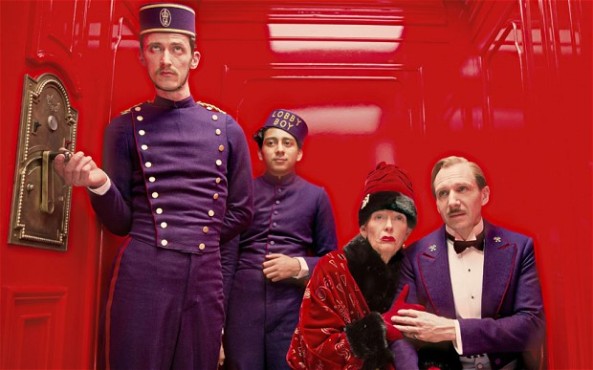Wes Anderson has been making Wes Anderson movies his entire career; no one quite does it better (though many have tried). They’re rife with perfectly precise miniatures of colorful, excrutiating detail, and over the years his set dressing has conveyed kitsch, adolescence and cartoons.
“The Grand Budapest Hotel” may be the most Wes Anderson-y film yet. Its title character M. Gustave (Ralph Fiennes) embodies the fastidious perfectionist with an eye for fashionable excellence in a way that no other Anderson character has captured the director’s true sense of style. It’s a silly, sinister and sneaky caper that thrives on its careful construction.
Gustave is the concierge of the Grand Budapest Hotel in the fictional Eastern European country Zubrowska in 1932. Years later after war has forever affected the majesty of the region and the hotel itself, we meet Zero Mustafa (F. Murray Abraham) regaling his days as a young lobby boy (Tony Revolori) under Gustave’s tutelage.
Fiennes is wonderful as an eloquent and aloof manager and womanizer, quick witted in his authority and charmingly blunt to the elderly women he beds. His prize is Madame D. (an almost unrecognizable Tilda Swinton under pounds of makeup), a wealthy maiden who suddenly turns up murdered, but not before bequeathing a priceless painting to Gustave. As a result, Gustave soon finds himself on the run from Madame’s vindictive son (Adrien Brody) and the authorities (led by a hilariously out of place and without an accent Edward Norton). Continue reading “The Grand Budapest Hotel”
